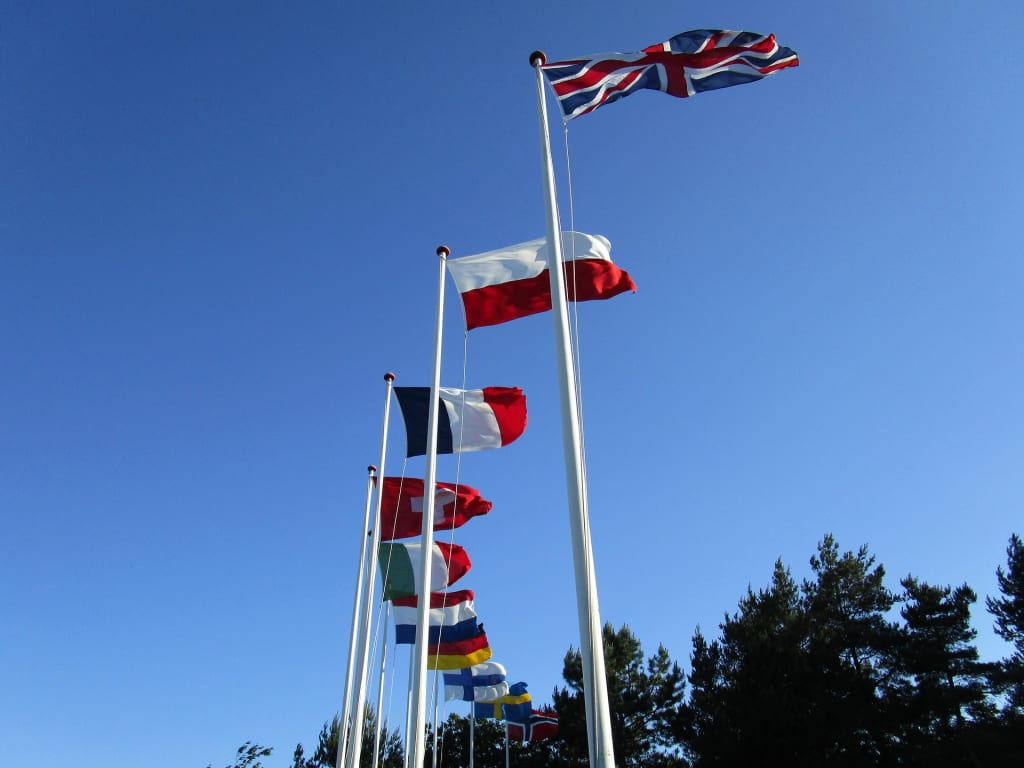Easiest Languages for an English Speaker To Learn
If you want to learn a new language, you might want to try one of these

English loves to borrow words from different languages. We’ve borrowed “gung-ho” from Chinese, “chocolate” from Nahuatl, and “plaza” from Spanish. French, in particular, has a lot of words that are similar to English counterparts. Of course, similarities don’t end with vocabulary. Languages might have grammar rules similar to English’s or very different. Some languages use Latin characters like English, while others use different writing systems. There are many ways in which languages can be similar, and these similarities can be a huge help to anyone learning a new language.
If you want to use your existing English knowledge to get started learning a new language, here are some to consider.
Scots
Scots is a West Germanic language that developed in Scotland in the 7th century. It is the closest language in the world to English as both languages came from an older variety of English. UNESCO considers it a vulnerable language because the number of speakers is dwindling. More people in Scotland now consider English their native language.
Some linguists don’t consider Scots to be its own language, claiming instead that it is a dialect of English. However, Scots itself has a number of dialects.
Because of how similar Scots and English are, it’s almost easier to focus on their differences rather than their similarities.
One of the first things you’d notice if you heard Scots spoken is the difference in pronunciation. You might assume that this is only an accent difference, but it goes beyond that.
There are vocabulary differences as well. Though many Scots phrases will be recognizable to English speakers, they will often include words not used in English. Chances are high that you actually know a Scots vocabulary word or two though. “Loch,” as in the Loch Ness Monster, is “lake” in Scots.
Frisian
Frisian is spoken by the Frisian people in the Netherlands and Germany. Depending on who you ask, Frisian either has three dialects or is a group of three different languages. Aside from Scots, it is the language most closely related to English. Unlike Scots, which English speakers can usually understand, Frisian is not intelligible to an English speaker. Frisian speakers can’t understand other Frisian languages themselves either; they’re too distinct from one another. Today, there are three different Frisian languages (or dialects): West Frisian, North Frisian, and East Frisian. West Frisian is spoken in the Netherlands, while the latter two are spoken in different parts of Germany.
Though Frisian has a common ancestor with English, both languages have been influenced by others over time. Because of Frisian’s location, it has been greatly influenced by Dutch and German. English, meanwhile, has been influenced by other languages, such as French.
Frisian and English have quite a few similarities in their pronunciation, with many words sounding similar even if spelled differently. One example of this is the English word “cheese.” In Frisian, it’s written as “tsiis.” Despite how different the two words look when written, they’re actually pronounced similarly.
Dutch
With about 23 million native speakers, more people will have encountered Dutch than Frisian or Scots. Dutch is the third most spoken Germanic language, beaten out only by English and German. Of the major world languages, it is the one most closely related to English.
Because of their close relationship, many words in English and Dutch are similar to each other in both pronunciation and spelling. Here are just a few words that are the same in both languages: yacht, warm, water. And even more words are similar though not exactly the same. Those include: straat (street), kat (cat), and droom (dream).
If you’ve ever been frustrated studying a language with a complex case system, Dutch doesn’t have much of one. This is similar to English, which has mostly lost its own case system.
One aspect of Dutch that English doesn’t have is grammatical gender, which can also be found in languages such as French and Spanish.
Norwegian
The Norwegian language, along with other Scandanavian languages, developed from Old Norse. Norwegian, Swedish, and Danish are all similar languages today. Norwegian speakers can often understand Swedish and Danish speakers without having to learn them as new languages.
Like the other languages on this list, Norwegian includes a number of words that sound familiar to English speakers, which makes learning these words a bit easier. On top of this, Norwegian sentence structure is similar to English sentence structure. One cool similarity is that Norwegian adds an ‘s’ to the end of a word to make it possessive, just like English adds an apostrophe and an ‘s.’
German
Considering English is a Germanic language, it’s no surprise that it’s similar to German, a language with more than 132 million speakers. English split ways with German earlier than it did the other languages on this list, but the two languages still have things in common.
Like other Germanic languages, German shares some similar words to English. This is true both because words have evolved from the same root word and because English has borrowed German words over the years. Many people know that words like “pretzel” came from German, but it can be more surprising to learn that words like “rucksack” and “angst” were originally German too. Meanwhile, “house” is the similar “Hause” in German while “water” is “Wasser.”
While there are many other languages that have some similarities with English, such as French, these are five of the closest relatives English has. This makes them great options for English speakers looking to learn a new language.





Comments
There are no comments for this story
Be the first to respond and start the conversation.